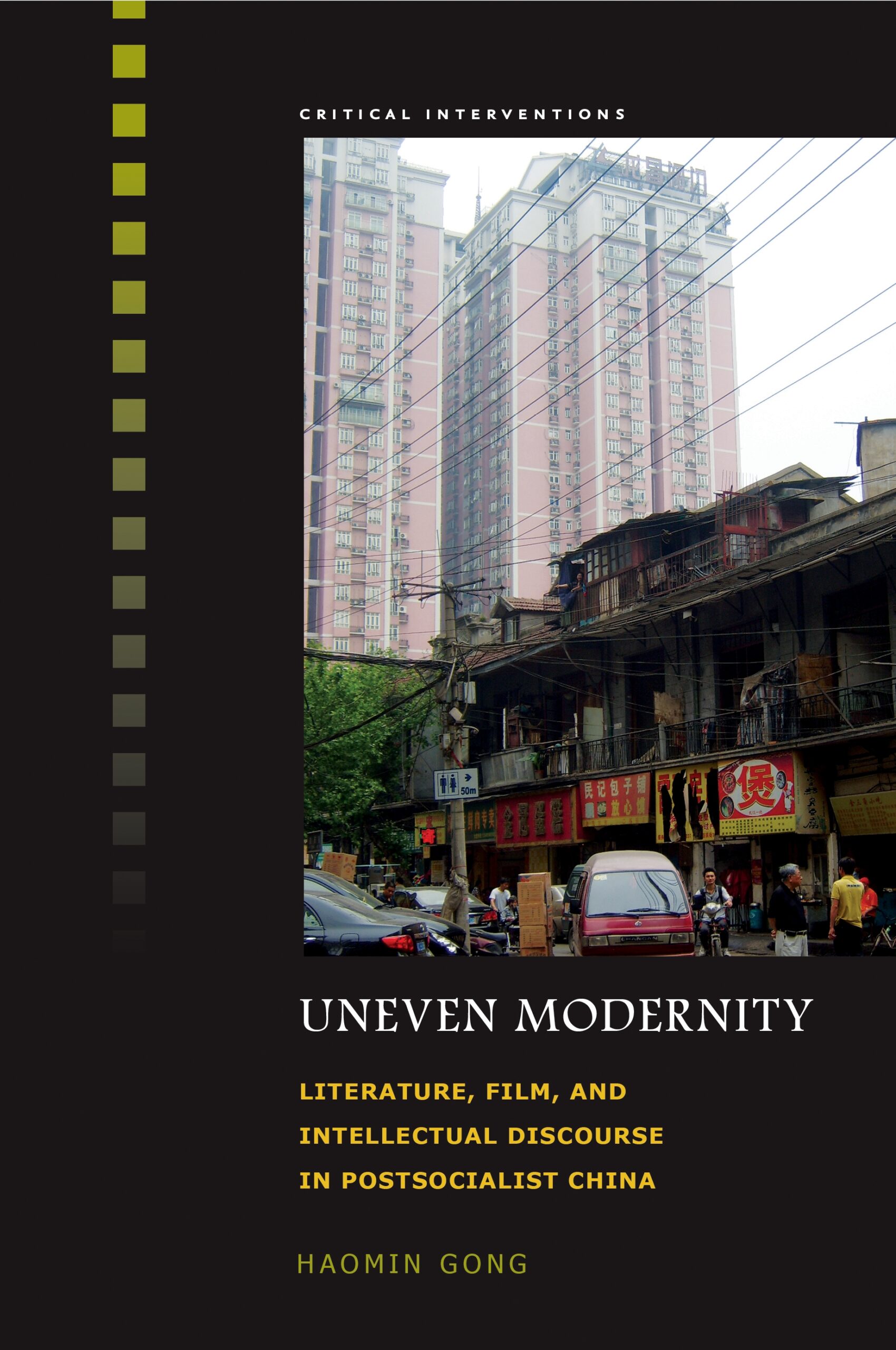Uneven Modernity: Literature, Film, and Intellectual Discourse in Postsocialist China
- About the Book
-
Postsocialist China is marked by paradoxes: economic boom, political conservatism, cultural complexity. Haomin Gong’s dynamic study of these paradoxes, or “unevenness,” provides a unique and seminal approach to contemporary China. Reading unevenness as a problem and an opportunity simultaneously, Gong investigates how this dialectical social situation shapes cultural production. He begins his investigation of “uneven modernity” in China by constructing a critical framework of unevenness among different theoretical schools and expounding on how dialectical thinking points to a metaphysical paradox in capitalism and modernity: the inevitable tension between a constant pursuit of infinite fullness and a break of fullness (unevenness) as the means of this pursuit. In the Chinese context, this paradox is created in the “uneven developmentalism” that most manifestly characterizes the postsocialist period.
Gong goes on to investigate manifestations of the dialectics of unevenness in specific cultural events. Four case studies address respectively but not exclusively literature (the prose of Yu Qiuyu), popular fiction (Chi Li’s neorealist fiction), commercial cinema (the movies of Feng Xiaogang), and art-house cinema (Wang Xiaoshuai’s filmmaking). Representing different aspects of cultural production in postsocialist China, these writers and directors deal with the same social condition of uneven development, and their works clearly exhibit the problematics of this age.
Uneven Modernity makes a significant contribution to the burgeoning field of China studies as well as the study of uneven development in general. It addresses some of the most popular, yet understudied, cultural phenomena in contemporary China. Specialists and students will find its insights admirable and its style accessible.
- About the Author(s)
-
Haomin Gong, Author
- Reviews and Endorsements
-
- "Uneven Modernity is an excellent addition to the study of contemporary China... Gong's analysis of China's contemporary cultural phenomena from the perspective of uneven modernity offers insight that is new and refreshing." - Yiyan Wang, Victoria University of Wellington, The China Journal (No 70) "Gong has written a very good book. Its greatest strengths derive from the nicely balanced eclecticism of its theoretical approach and the diversity of its subject matter. By integrating neo-Marxist and non-Marxist structual perspectives into his analysis he achieves more depth than writers who have worked more narrowly within the frameworks provided by postmodernism, literary criticism and film studies; and by applying his approach successfully to different genres of both literature and film he has produced a wide ranging study with impressive explanatory scope. His book should be read by all who are interested in modern Chinese literature and film, and by both students and academics in the wider field of contemporary Chinese studies." - Fengyuan Ji, The Australian National University, NZJAS (15, 1) (June 2013)
—The China Journal
- "Uneven Modernity is an excellent addition to the study of contemporary China... Gong's analysis of China's contemporary cultural phenomena from the perspective of uneven modernity offers insight that is new and refreshing." - Yiyan Wang, Victoria University of Wellington, The China Journal (No 70) "Gong has written a very good book. Its greatest strengths derive from the nicely balanced eclecticism of its theoretical approach and the diversity of its subject matter. By integrating neo-Marxist and non-Marxist structual perspectives into his analysis he achieves more depth than writers who have worked more narrowly within the frameworks provided by postmodernism, literary criticism and film studies; and by applying his approach successfully to different genres of both literature and film he has produced a wide ranging study with impressive explanatory scope. His book should be read by all who are interested in modern Chinese literature and film, and by both students and academics in the wider field of contemporary Chinese studies." - Fengyuan Ji, The Australian National University, NZJAS (15, 1) (June 2013)
- Supporting Resources
-





